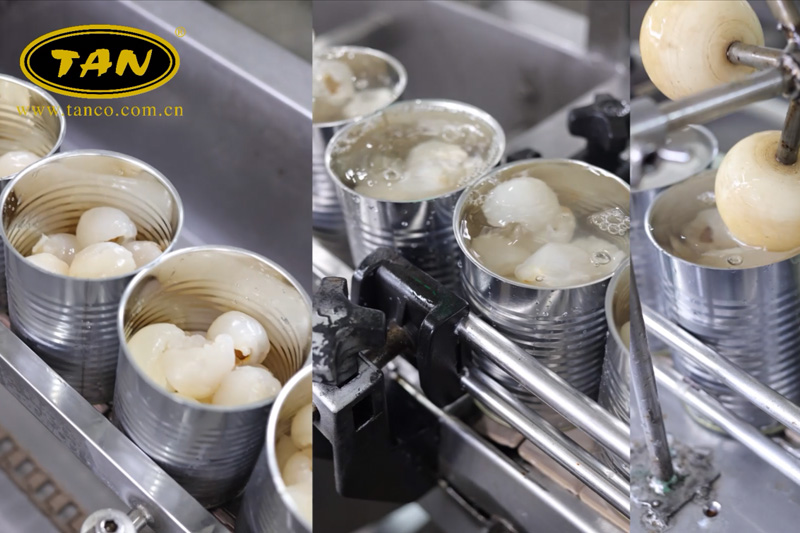In recent years, consumer awareness about the potential health risks associated with certain chemicals in food packaging has grown significantly. One such concern revolves around bisphenol A (BPA), a chemical commonly used in the production of canned food packaging. As consumers seek safer alternatives, the demand for BPA-free canned food packaging has surged. In this blog post, we'll delve into the importance of addressing consumer concerns regarding BPA and how canned food manufacturers are leveraging mushroom production technology, insights, and innovative manufacturing techniques to meet this demand while ensuring the safety and integrity of their products.
Understanding BPA and Its Risks
Bisphenol A (BPA) is a chemical compound used in the production of polycarbonate plastics and epoxy resins, which are commonly found in food and beverage containers, including canned food packaging. While BPA has been utilized for decades to enhance the durability and longevity of food packaging, concerns have been raised about its potential health effects.
Research has linked BPA exposure to various health issues, including hormone disruption, reproductive disorders, and developmental abnormalities. As a result, consumers have become increasingly wary of products containing BPA, leading to a growing demand for BPA-free alternatives, particularly in canned food packaging.
The Importance of BPA-Free Canned Food Packaging
Canned food manufacturers recognize the significance of addressing consumer concerns regarding BPA and are taking proactive steps to offer BPA-free alternatives. By transitioning to BPA-free packaging materials, manufacturers aim to provide consumers with peace of mind while maintaining the convenience, versatility, and shelf stability of canned foods.
Moreover, BPA-free canned food packaging aligns with the broader trend towards healthier, more sustainable products. By prioritizing consumer safety and environmental responsibility, manufacturers can build trust and loyalty with consumers and differentiate their brands in a competitive market.
Leveraging Mushroom Production Technology for Sustainable Packaging
One innovative approach to developing BPA-free canned food packaging involves leveraging mushroom production technology. Mushrooms offer a sustainable alternative to traditional packaging materials, such as plastics and metals, due to their biodegradable and compostable properties.
Through advancements in mushroom production technology, manufacturers can extract mycelium, the root-like structure of mushrooms, and mold it into durable and versatile packaging materials. These mushroom-based materials not only provide a safe and eco-friendly alternative to BPA-containing plastics but also offer insulation and moisture-resistant properties, ensuring the freshness and integrity of canned foods.
Insights Driving Innovation in BPA-Free Packaging
Insights gathered from consumer preferences, market trends, and scientific research play a pivotal role in driving innovation in BPA-free packaging. By staying informed about emerging technologies and consumer concerns, canned food manufacturers can anticipate market demand and develop solutions that meet the evolving needs of consumers.
Moreover, insights into sustainable packaging practices and environmental stewardship guide manufacturers in adopting responsible sourcing and manufacturing processes. By minimizing waste, conserving resources, and reducing carbon emissions, manufacturers can create BPA-free canned food packaging that aligns with consumers' values and expectations.
Ensuring Safety and Integrity Through Rigorous Testing
Ensuring the safety and integrity of BPA-free canned food packaging requires rigorous testing and quality assurance protocols. Manufacturers adhere to strict regulatory guidelines and industry standards to certify that their products meet safety requirements and protect against contamination.
Furthermore, transparency and communication are essential for building consumer trust and confidence in BPA-free canned food packaging. Manufacturers provide clear and accurate information about their packaging materials and manufacturing processes, empowering consumers to make informed choices about the products they purchase.
Conclusion: A Safer and Sustainable Future for Canned Food Packaging
In conclusion, addressing consumer concerns regarding BPA in canned food packaging is crucial for ensuring the safety and well-being of consumers. By transitioning to BPA-free packaging materials and leveraging mushroom production technology, insights, and innovative manufacturing techniques, canned food manufacturers can meet the growing demand for safer and more sustainable alternatives.
As consumer awareness continues to grow, the shift towards BPA-free canned food packaging represents a positive step towards a safer and more sustainable future. By prioritizing consumer safety, environmental responsibility, and transparency, manufacturers can build trust and loyalty with consumers while ensuring the continued success of their brands in a competitive market. With BPA-free canned food packaging as the new standard, consumers can enjoy the convenience and versatility of canned foods with confidence and peace of mind.



采访刊发中国罐头⾏业-01.jpg)

